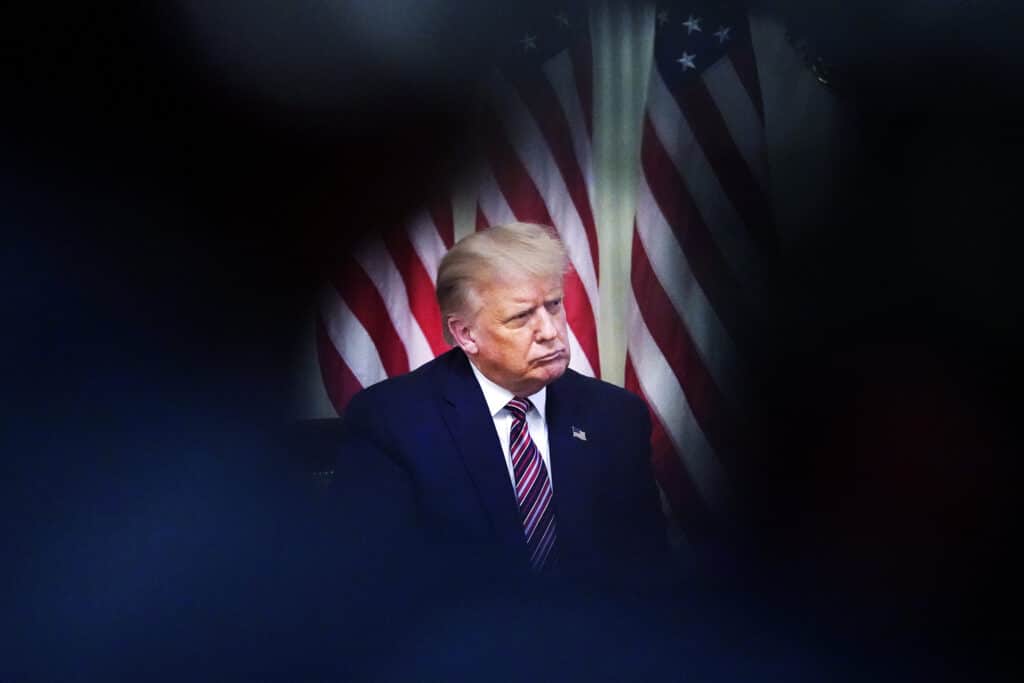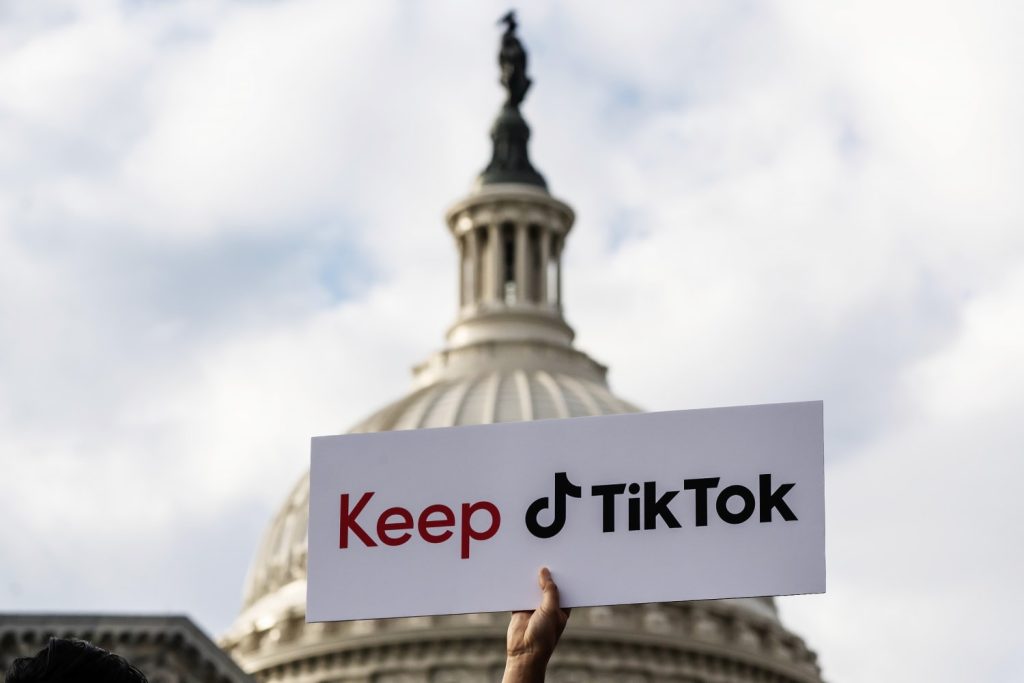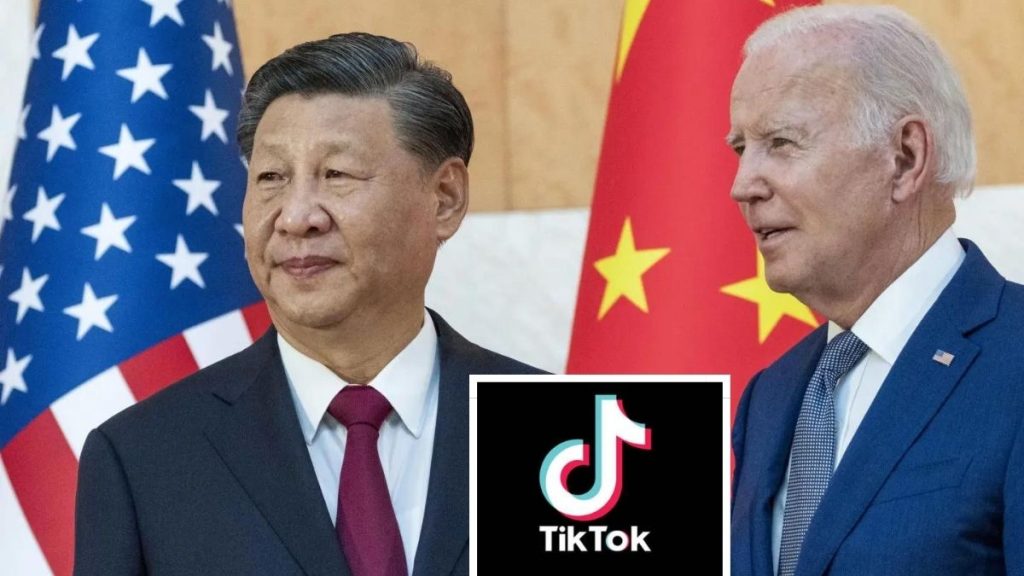Politics
Thousands Of Remote IT Workers Sent Wages To North Korea To Help Fund Weapons Program, FBI Says

ST. LOUIS & North Korea— Officials from the FBI and Department of Justice have stated that thousands of information technology contractors employed by U.S. companies have secretly transferred millions of dollars of their wages to North Korea for years in its ballistic missile program.
Wednesday, the Justice Department announced that North Korean-contracted and dispatched IT personnel to work remotely for U.S. companies in St. Louis and elsewhere had been obtaining employment under pretenses. According to statements made by FBI officials at a news conference held in St. Louis, the funds they acquired were allocated to the North Korean weapons program.
According to court documents, the North Korean government allegedly deployed tens of thousands of highly skilled IT professionals to reside predominantly in China and Russia to deceive American and international companies into believing they were freelance remote workers. Special agent in command of the FBI office in St. Louis Jay Greenberg, stated that the employees paid Americans to use their home Wi-Fi connections, among other methods, to give the impression that they were operating in the United States.
Any organization that employed freelance IT workers “likely” hired an individual involved in the scheme, according to Greenberg. On Thursday, an FBI spokesperson stated that North Korean agents had contracted with businesses throughout the United States and other nations.
“We can confirm that thousands of North Korean IT personnel are involved in this,” said spokeswoman Rebecca Wu.
In the ongoing investigation, federal authorities have declared the confiscation of seventeen domain names and $1.5 million.
According to FBI officials, the scheme is so widespread that employers must be extra vigilant in their recruiting practices, including mandating that interviewees be videotaped.
Greenberg said in a news release, “At a minimum, the FBI advises employers to take additional proactive measures with remote IT personnel to make it more difficult for malicious actors to conceal their identities.”
The annual wages of the IT personnel contributed millions of dollars to financing North Korea’s nuclear programs. The Justice Department stated that in some instances, North Korean employees also breached computer networks and stole information from the corporations that employed them. The agency also maintained access for future extortion and hacking operations.
Officials did not specify the year the practice began, the names of the companies that unknowingly employed North Korean laborers or how investigators became aware of it. However, federal authorities have been aware of the scheme for some time.
An advisory warning was jointly issued by the State Department, Department of the Treasury, and the FBI in May 2022 regarding endeavors by North Korean individuals “to secure employment under the guise of non-North Korean nationals.” The advisory noted that the Kim Jong Un regime has “placed a greater emphasis on education and training” in IT-related subjects in recent years.
According to John Hultquist, head of threat intelligence at the cybersecurity firm Mandiant, North Korea has been using IT freelancers to help finance its weapons program for over a decade. However, the COVID-19 pandemic accelerated the effort.
Thousands of remote IT workers sent wages to North Korea to help fund weapons program, the FBI says.
Hultquist stated, “I believe the post-COVID world has created a great deal more opportunity for them, as remote hiring and freelancing are now much more natural components of the business than they were previously.”
Hultquist stated that North Korea also employs workers in other fields to recoup funds for its weapons program; however, tech workers are compensated more lucratively and thus constitute a more profitable resource.
As a reciprocal response to North Korea’s launch of over a hundred missile tests since the beginning of 2022, the United States has increased military exercises with its Asian allies, elevating tensions on the Korean Peninsula.
In recent years, the Justice Department has endeavored to uncover and impede an extensive array of criminal schemes designed to support the North Korean regime, including its nuclear weapons program.
In 2016, the United States levied charges against four Chinese nationals and a trading company because they utilized front companies to circumvent sanctions imposed on North Korea for its nuclear weapons and ballistics programs.
The Justice Department indicted three North Korean computer programmers and members of the government’s military intelligence agency in connection with various global cyberattacks that, according to officials, were executed at the regime’s behest two years ago. At the time, law enforcement officials stated that the prosecution’s case underscored the profit-oriented motivation underlying North Korea’s malicious hacking, in contrast to other adversarial countries such as Russia, China, and Iran, which primarily pursue espionage, intellectual property theft, or democratic disruption.
North Korean leader Kim Jong Un reportedly demanded in September an exponential increase in nuclear weapon production and a greater role for his nation in a coalition of nations engaging the United States in a “new Cold War,” according to state media.
In February, experts from the United Nations reported that government-affiliated North Korean hackers seized virtual assets with an unprecedented value of over $1 billion and $630 million in the previous year. The panel of experts stated in a report that the hackers gained access to digital networks involved in cyberfinance and stole information from governments, individuals, and businesses that could be useful for North Korea’s nuclear and ballistic missile programs using ever more sophisticated techniques.
SOURCE – (AP)
Politics
House Speaker Mike Johnson Survives Marjorie Taylor Greene’s Motion to Vacate

Republican Congresswoman Marjorie Taylor Greene’s attempt to unseat Mike Johnson as Speaker of the House of Representatives failed. She had requested Johnson’s resignation because he supported a $61 billion aid plan for Ukraine.
However, Democrats and Republicans voted 359-43 to defeat her motion. Other chamber members loudly booed Ms Greene’s address on the House floor.
Shortly after the vote, Mr Johnson said it would end “the personality politics and frivolous character assassination that has defined the 118th Congress.”
“I’m glad that this distraction is not going to inhibit that important work and all the other things that are on the table and on the agenda for us right now,” he stated.
The long-awaited move proved a rare show of disobedience against the party’s presumptive presidential nominee, Donald Trump. Earlier, he expressed his support for the House Speaker and described the effort to remove him as “unfortunate”.
Only two Republican members of Congress, Thomas Massie and Paul Gosar, supported Ms Greene’s move.
Ms Greene, joined by Mr Massie, took to the House floor to criticize Mr Johnson for a series of compromises he has reached with Democrats, who have a Senate majority.
“This is the ‘uniparty’ for the American people watching,” she told the politicians in the chamber, who booed her. “By passing the Democrats’ agenda and handcuffing the Republicans’ ability and influence legislation, our elected Republican Speaker Mike Johnson has aided and abetted the Democrats and the Biden administration in destroying our country,” she stated.
Mr Johnson was spotted striding around the House floor after Ms Greene introduced her motion, with Republican supporters shaking his hand and slapping him on the back.

Former President Donald Trump listens during an event called “Kids First: AP Photo
Trump goes against Marjorie Taylor Greene.
During Ms Greene’s address, former President Trump posted on his Truth Social platform a message urging Republicans to reject her request to remove the speaker’s post.
Former President Trump opened his article with “I love Marjorie Taylor Greene.” He warned Republican members of Congress that “now is not the time” to remove Mr. Johnson.
“If we show DISUNITY, which will be portrayed as CHAOS, it will negatively affect everything!” he remarked, adding that the Republican Speaker was a “good man who is trying very hard”.
Ms Greene submitted the move in March, which would eventually trigger the vote on Mr Johnson’s dismissal, but it was unclear when or if she would advance it. She did so on Wednesday, requiring the Republican-led chamber to vote on the House leader’s position within two legislative days.
A similar parliamentary maneuver was used to oust former Republican Speaker Kevin McCarthy in the autumn, leaving the house without an elected leader for three weeks.
Democrats took the rare decision to support a Republican House Speaker due to the chamber’s razor-thin majorities, but they recently chastised Mr Johnson for meeting with her several times this week.
“When Speaker Johnson meets with her for hours, the American people should be asking ‘what is Marjorie Taylor Greene extracting from the speaker?'” According to Axios, Democratic Representative Ted Lieu spoke on Tuesday.
On Tuesday, Mr Johnson stated that the conversations were not a “negotiation” and disputed that Republican leaders were considering any concessions in exchange for her support.
Marjorie Taylor Greene is a far-right Republican lawmaker noted for her controversial views and confrontational rhetoric. She has been fired for supporting conspiracy theories such as QAnon and making harsh remarks about various groups.
Greene’s outspoken attitude appeals to her audience but alienates many others. Despite calls to resign, she remains a powerful voice in the Republican Party’s hard-right fringe.
Source: AOL
Politics
Former NDP Leader Mulclair Says Trudeau Should Retire

When all hell broke loose in the House last week, those with experience as parliamentarians couldn’t believe our eyes. Speaker Greg Fergus tossed out the Leader of His Majesty’s Loyal Opposition, Pierre Poilievre, on the flimsiest pretenses.
Fergus is highly partisan. We all knew that when Trudeau backed him in the election to replace Anthony Rota), who’d been forced to step down after introducing a former Nazi soldier in Parliament.
When Fergus got caught making a partisan video for an Ontario Liberal colleague, many calls were made for him to resign. He had egregiously breached the most basic rules requiring neutrality in the chair. He’d even made the video in his Parliamentary quarters, wearing his robes of office.
I pleaded that his error was serious, but it was a rookie mistake, and he deserved a second chance. Watching his dreadful performance with Poilievre last week, I regretted defending him.
After Poilievre’s ejection, Trudeau and the company were gloves off. During a campaign, they put on a full-court press worthy of a war room. Other pundits I spoke with were dutifully spun by whatever Liberal had contact with them. They thought they had finally caught a break in their Holy War against the evil Poilievre.
The usual Liberal supporters were out there spinning that Poilievre had done it on purpose to get thrown out. That was nonsense as it was unpredictable that someone who’d “simply withdrawn” the word “wacko” — as requested by the Speaker — would nonetheless be turfed.
Trudeau had called Poilievre “spineless” with impunity
It was unprecedented to throw out the Leader of the Opposition without a clear final warning and unambiguous instructions, especially after Trudeau had called Poilievre “spineless” with impunity.
If anything, getting Poilievre turfed seemed to have been concerted and planned, not by Poilievre, but by the Liberals in cahoots with their Speaker.
My vantage point into that desperate, full-bore Liberal effort to spin this against Poilievre came from an early morning call from a senior Liberal minister. In my line of work, as an observer and analyst of the political scene, knowing and being able to speak with ministers is part and parcel of doing your job well. Being able to call us, in return, is no doubt also part of theirs.
My interlocutor quickly understood that, with my years of experience, no one would convince me that Fergus was right. I was elected for three mandates to the rough-and-tumble National Assembly in Quebec City, where I served as Deputy House Leader, both in opposition and power. I also served as Official Opposition House Leader in Ottawa before assuming the same role Thilievre has today: Leader of the Official Opposition.
I mention all that to reinforce that I know the ropes and the important institutional roles involved. My senior Liberal changed tack when it was clear I thought Fergus had to go. They went all-in, making a negative and personal attack against Poilievre. It was brutal and came off as orchestrated, if not contrived.
It was not just an attack on Poilievre. It was a plea for me to acknowledge just how awful he was. He represents a clear and present danger for our institutions. It had an air of fin de régime, the end of Trudeau’s political era, and it wasn’t going out on a high note.
Trudeau is still lagging 20 points behind.
It may mark the beginning of the end, but Trudeau isn’t about to leave simply because Canadian voters have decided to give him his pink slip. He has options, and he knows it. Sure, hardly a day goes by without an article detailing the plans of one cabinet minister to replace Trudeau or an outside potential successor giving an eloquent speech to the Liberal faithful.
Polls are being published to show which possible new leaders have the most public favor. This is happening against a backdrop of Trudeau still lagging 20 points behind, with nothing to show for his mammoth pre-budget tour or from the budget itself.
However, Trudeau still holds many good cards in his hand. He brought the Liberal Party back to life after the Ignatieff debacle. They owe him everything. He’s not about to be given the boot. He’ll be the only one to decide when and if he’ll leave. He’s won three elections in a row, but he should have noted that Canadians cast more votes for the Conservatives in the 2019 and 2021 campaigns. The writing was already on the wall. He couldn’t, or wouldn’t, decode it.
I know several senior Liberals, both high-level volunteers and MPs with access to Trudeau, who has been encouraging him to consider this is his ‘legacy mandate,’ to be graceful and leave his place to someone else so that the party still has the time to give a new leader a chance in the next election. All say that Trudeau refuses to admit that he may be the problem, much less listen to their heartfelt advice.
Of course, it’s not in Trudeau’s nature to admit he and his hapless administration of Canada could be to blame. Now that the proof is in front of him daily in the polls, how long can he deny the obvious?
The writing may be on the wall, but it’s important to remember that Trudeau could still decide tomorrow to walk across the lawn from Rideau Cottage, where he lives, to Rideau Hall and ask Gov.-Gen. Mary Simon to call an election, and she’d have no choice but to do so.
Those senior Liberal organizers know it as well. The longer Trudeau dithers, the less likely there will be a push by frustrated potential successors to drink from a poisoned chalice. With no time to fully present themselves to Canadians, much less organize properly for an election, they’d be cannon fodder for Poilievre’s Conservatives.
The Liberals I speak with still clutch at the hope that a lot of Singh’s NDP vote will drift over to them when progressives sense the impending doom of a Poilievre Conservative victory. The fact that a considerable cohort of NDP MPs has either quit or announced their intention not to run indicates that there may be far fewer votes to purloin than there may have been before the NDP-Liberal deal and before Poilievre’s ascendancy.
In the meantime, if last week’s shenanigans are any indication, Canadians can expect a brutal, personal knock-down, drag-out fight between the leaders of the two parties that have governed Canada since Confederation. It’s going to get ugly.
By Tom Mulcair, Leader of the federal New Democratic Party of Canada between 2012 and 2017
News
TikTok, ByteDance File Appeal US Government Nationwide Ban

TikTok and its Chinese parent company ByteDance filed a lawsuit in federal court in the United States on Tuesday, seeking to overturn a law signed by President Joe Biden that would require the divestment or prohibition of the short video app used by 170 million Americans.
The corporations filed their action in the United States Court of Appeals for the District of Columbia Circuit, claiming that the statute violates the U.S. Constitution for various reasons, including violating First Amendment free speech protections.
Biden signed the measure on April 24, giving ByteDance until January 19 to sell TikTok or face a ban.
“For the first time in history, Congress has enacted a law that subjects a single, named speech platform to a permanent, nationwide ban,” the firms claim in their case.
The lawsuit stated that the divestment “is simply not possible: not commercially, technologically, or legally.” There is little doubt that the Act (law) will compel the shutdown of TikTok by January 19, 2025, silencing the 170 million Americans who use the platform to communicate in ways that cannot be replicated elsewhere.”
The White House has stated that it wants to restrict Chinese ownership for national security reasons, not a ban on TikTok. The White House and the Justice Department have declined to comment on the case.
TikTok’s political uncertainties
The complaint is TikTok’s latest measure to stave off efforts to shut it down in the United States. Competitors like Snap and Meta seek to profit from TikTok’s political uncertainties and steal advertising dollars from its competitors.
Driven by concerns among U.S. senators that China may use the app to acquire data on Americans or spy on them, the bill was passed by Congress overwhelmingly just weeks after it was presented.
TikTok has denied sharing U.S. user data and accused American politicians of raising “speculative” fears in the case.
Representative Raja Krishnamoorthi, the lead Democrat on a House Committee on China, stated that the proposal is “the only way to address the national security threat posed by ByteDance’s ownership of apps like TikTok.”
“Instead of continuing its deceptive tactics, it’s time for ByteDance to start the divestment process,” he stated.
The rule prevents app stores such as Apple and Alphabet’s Google from supplying TikTok and internet hosting providers from supporting It unless ByteDance divests by January 19.
The suit stated that the Chinese government “has made clear that it would not permit a divestment of the recommendation engine that is critical to TikTok’s success in the United States.”
Conflicts between the United States and China
The firms urged the D.C. Circuit to prevent U.S. Attorney General Merrick Garland from executing the statute, arguing that “prospective injunctive relief” is necessary.
According to the lawsuit, global institutional investors such as BlackRock, General Atlantic, and Susquehanna International Group hold 58% of ByteDance, while the company’s Chinese founder owns 21%, and employees, including around 7,000 Americans, own another 21%.
The four-year battle over TikTok represents a crucial battleground in the ongoing conflict between the United States and China over the internet and technology. In April, Apple announced that China had asked to remove Meta Platforms’ WhatsApp and Threads from its App Store in China because of national security concerns.
According to the lawsuit, TikTok spent $2 billion on steps to secure U.S. users’ data and made additional pledges in a 90-page draft National Security Agreement established through negotiations with the Committee on Foreign Investment in the United States (CFIUS).
According to the claim, TikTok agreed to a “shutdown option” under which the U.S. government could stop TikTok in the U.S. if it violated specified requirements.
According to the lawsuit, CFIUS discontinued significant conversations concerning the transaction in August 2022, and in March 2023, CFIUS “insisted that ByteDance divest the U.S. TikTok business.”
Biden Campaign Using TikTok
CFIUS is an interagency body chaired by the United States Treasury Department that investigates foreign investments in American enterprises and real estate that raise national security issues.
In 2020, judges ruled against President Donald Trump’s attempt to prohibit TikTok and WeChat, owned by Tencent (0700. H.K.).
Resides in the United States. Trump, the Republican candidate running against Democrat Joe Biden in the November 5 presidential election, has shifted course, stating he does not support a ban but that security concerns must be addressed.
If Biden believes ByteDance is progressing, he may extend the January 19 deadline by three months. According to the lawsuit, Biden’s presidential campaign’s continued usage of TikTok “undermines the claim that the platform poses an actual threat to Americans.” The Trump campaign does not use TikTok.
Many experts have questioned if any potential buyer has the financial capacity to acquire TikTok and whether Chinese and U.S. government authorities would authorize a sale.
According to the lawsuit, moving the TikTok source code to the United States “would take years for an entirely new set of engineers to gain sufficient familiarity.”
Source: Reuters
-
Sports5 months ago
Saints’ Aggressive Play-Calling Ends Up Coming Back To Hurt Them In Loss To Rams
-
Business5 months ago
Nike Says It Will Cut $2 Billion In Costs In A Major Warning For Consumers
-
Politics5 months ago
Claudine Gay: Harvard President Won’t Lose Job Over Congress Row
-
Business5 months ago
Federal Court Revives Lawsuit Against Nirvana Over 1991 ‘Nevermind’ Naked Baby Album Cover
-
News4 months ago
The Rise of Woke Ideology in Western Culture
-
Learning5 months ago
POLG Mutations and Its Impact on Children’s’ Health





















































